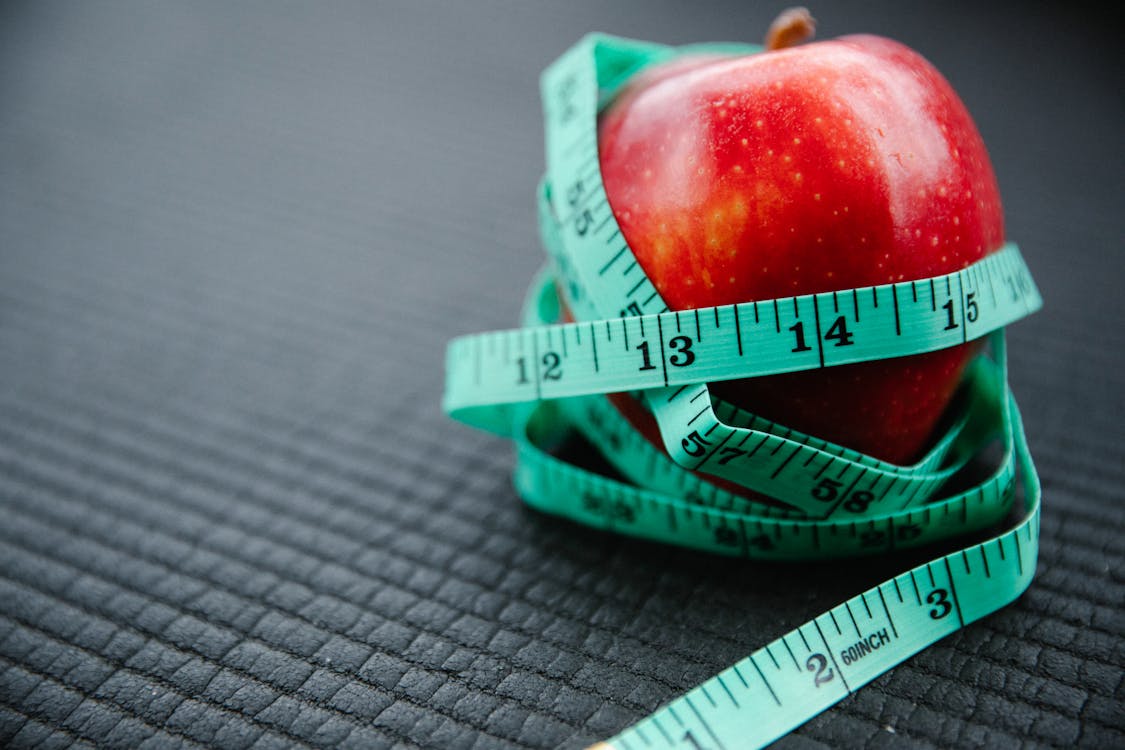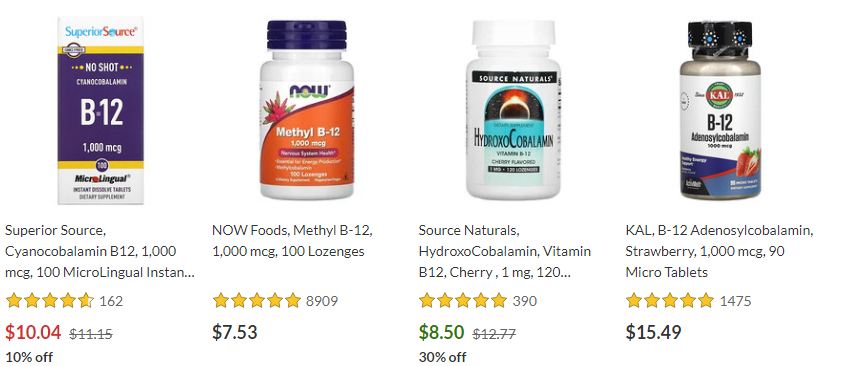
When it comes to weight management, a well-balanced diet is essential. One crucial nutrient that often goes unnoticed but plays a significant role in maintaining a healthy weight is vitamin B12. Now, Herbomass will explore the importance of vitamin B12 for weight watchers and provide valuable information on incorporating it into your diet.
What is Vitamin B12?

In the intricate tapestry of human nutrition, few elements shine as brightly as Vitamin B12, a water-soluble marvel also recognized by its scientific alias, cobalamin. Beyond the spotlight of mainstream dietary discourse, this unassuming nutrient takes center stage in orchestrating a symphony of essential bodily functions. While its role in supporting the production of red blood cells, maintaining a robust nervous system, and facilitating DNA synthesis is well-established, Vitamin B12’s influence extends beyond these conventional boundaries. Intriguingly, it has been postulated that this unassuming vitamin might even play an intriguing role in the realm of weight management—a facet of its potential that often remains concealed from common knowledge.
- A Pillar of Hematological Health: One of the most well-known roles of Vitamin B12 lies in its steadfast commitment to the production of red blood cells. This hematological masterpiece ensures that the body’s oxygen transport system remains finely tuned, allowing cells to thrive and energy levels to be sustained. The marriage between Vitamin B12 and the red blood cell orchestra underscores its non-negotiable significance in maintaining vitality and overall well-being.
- Nurturing the Nervous System: Just as a conductor steers an orchestra towards harmonious melodies, Vitamin B12 conducts the intricate symphony of the nervous system. This essential nutrient functions as a guardian, enveloping nerve cells in a protective embrace. Its absence can lead to a domino effect of neurological disruptions, underscoring the indispensable role it plays in preserving cognitive clarity, emotional equilibrium, and the body’s coordinated response to stimuli.
- Catalyzing DNA Dance: While the biological dance of DNA replication might seem a world apart from our everyday concerns, Vitamin B12 intricately intertwines with this molecular choreography. Its presence is crucial for the synthesis of DNA, the fundamental blueprint of life. This orchestration at the cellular level accentuates Vitamin B12’s far-reaching influence, echoing its indispensability in processes that govern our very existence.
- The Enigma of Weight Management: Beyond its classical roles, a new spotlight is being cast on Vitamin B12’s potential influence on weight management—an aspect that often remains shrouded in obscurity. Some research suggests that a deficiency in Vitamin B12 might be linked to altered metabolism and an increased tendency toward weight gain. While the intricacies of this relationship are still being unraveled, it introduces a captivating dimension to the vitamin’s already intricate profile.
As we unveil the multifaceted significance of Vitamin B12, its role transcends mere supplementation, emerging as a cornerstone of comprehensive well-being. From nurturing hematological health to safeguarding the nervous system and guiding DNA synthesis, this unassuming nutrient orchestrates an intricate ballet within our bodies. Moreover, its potential involvement in weight management hints at a complex interplay that invites further exploration. Thus, Vitamin B12 remains a testament to the perpetual journey of discovery within the realm of human nutrition and health.
Vitamin B12 and Weight Loss:

While vitamin B12 is not a magic weight loss pill, it can contribute to a healthy weight management plan in several ways:
- Boosting Metabolism: Adequate levels of vitamin B12 help optimize your metabolism. A healthy metabolism promotes efficient calorie burning and can support weight loss efforts.
- Energy Production: Vitamin B12 plays a crucial role in converting carbohydrates into glucose, which is used as fuel for energy. By ensuring your body has sufficient energy, vitamin B12 can help you maintain an active lifestyle and engage in regular exercise, both of which are essential for weight management.
- Enhancing Digestion: Adequate levels of vitamin B12 are necessary for proper digestion. It helps maintain a healthy gut by promoting the production of digestive enzymes and aiding in the absorption of nutrients. Efficient digestion is essential for weight loss as it ensures your body can effectively utilize the nutrients from the foods you consume.
Sources of Vitamin B12:

In the intricate symphony of dietary elements, Vitamin B12 emerges as a distinct and essential note that resonates with the well-being of our bodies. However, the melody of sourcing this vital nutrient is more nuanced than meets the eye. Embracing a comprehensive perspective, we unveil an array of sources that not only cater to conventional diets but also hold crucial significance for those treading the path of vegetarianism and veganism. With each source revealing its unique allure, we traverse the culinary landscape to gather a rich bouquet of Vitamin B12 options:
- Meat and Poultry: Lean cuts of beef, chicken, and turkey are rich in vitamin B12.
- Fish and Seafood: Fish such as salmon, trout, and tuna, as well as shellfish like clams and mussels, are good sources of vitamin B12.
- Dairy Products: Milk, cheese, and yogurt are excellent sources of vitamin B12 for lacto-vegetarians.
- Eggs: Including eggs in your diet can provide a good amount of vitamin B12.
Supplements for Vitamin B12:
In some cases, it may be challenging to obtain sufficient vitamin B12 solely through dietary sources. In such situations, supplements can be a valuable addition to your routine. Consult with a healthcare professional to determine the appropriate dosage and form of vitamin B12 supplement for your specific needs.
There are several supplements available for Vitamin B12, including:
- Cyanocobalamin: This is the most common form of Vitamin B12 supplement and is widely available. It is also the form used in most clinical studies.
- Methylcobalamin: This is a more bioavailable form of Vitamin B12 that is easier for the body to absorb and use. It is also more expensive than cyanocobalamin and is less commonly available.
- Hydroxocobalamin: This is a form of Vitamin B12 that is often used in an injectable form to treat Vitamin B12 deficiency. It is also available in oral supplements.
- Adenosylcobalamin: This is another form of Vitamin B12 that is involved in the production of energy in cells. It is less commonly available in supplement form.
here is our collection of Vitamins B12 Supplements

It’s important to note that while supplements can be helpful in treating Vitamin B12 deficiency, it’s best to get your nutrients from a balanced diet that includes a variety of nutrient-dense foods. If you are concerned about your Vitamin B12 levels, talk to a healthcare professional about whether a supplement might be necessary. They can help you determine your individual nutritional needs and recommend an appropriate supplement if necessary.
Conclusion:
When it comes to weight watchers, incorporating vitamin B12 into your diet can be beneficial. From supporting metabolism and energy production to aiding digestion, this essential nutrient contributes to overall well-being. Remember to include vitamin B12-rich foods or consider supplements to ensure you meet your body’s requirements. Prioritize a well-rounded diet and consult with a healthcare professional to create a personalized plan that suits your needs. Stay healthy and happy on your weight management journey!




